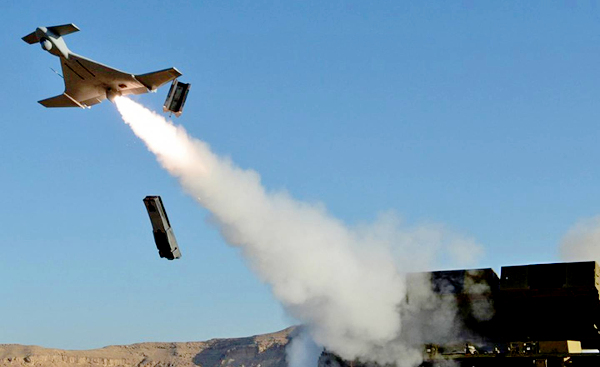In a bid to enhance its unmanned warfare capability, the Indian Air Force is planning to acquire around 15 more HAROP attack drones which can crash into high-value enemy military targets to destroy them completely.
The Air Force already has an inventory of these drones which are equipped with electro-optical sensors to loiter over high-value military targets such as surveillance bases and radar stations before exploding them.
“A proposal to acquire these attack drones is expected to be discussed by the Defence Ministry at a high-level meeting in the coming week to strengthen the fleet of such drones in the Air Force,” Defence sources told ANI.
Once approved, the Indian Air Force would be exercising the option clause in the previous deal signed a few years ago with Israel which is the main supplier of all types of drones to the Indian Air Force including the surveillance machines including the Searcher and the Heron.
India is also discussing the Project Cheetah with the Israelis under which almost all the drones of the three services would be turned into high-quality attack drones and their surveillance capabilities would also be enhanced.
The three forces have a fleet of more than 100 of these unmanned aerial vehicles which have been acquired over the years in different batches.
The forces are also working on developing indigenous combat drones which would be deployed on both the China and Pakistan border once the project is complete.
Americans have been using the combat drones to carry out targeted assassinations of terrorist leaders in Afghanistan, Iraq and Pakistan but the relatively slow unmanned vehicles are not known to be very effective in warfare where the opposition also has a strong air force.
Source: HT
Image Courtesy: The Drive
You may also like
-
IAF Aircraft Set Course For Exercise Eastern Bridge VII At Oman
-
IAF Set To Host The Indian Defence Aviation Exposition-II At Jodhpur
-
Defence Secretary to co-chair 5th India-Philippines Joint Defence Cooperation Committee meeting in Manila
-
Simultaneous Launch Of ‘malpe And Mulki’, Fourth And Fifth Ships Of Asw Swc (Csl) Project
-
Aatmanirbharta in Defence: MoD signs Contract with HAL for 240 AL-31FP Aero Engines for Su-30MKI Aircraft
